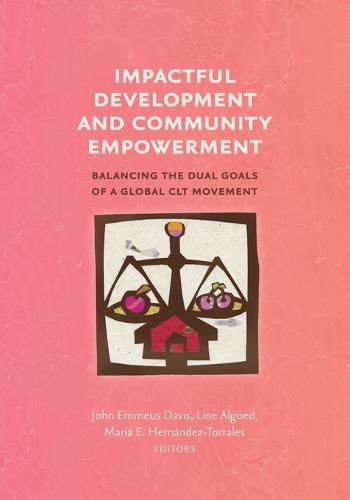Readings Newsletter
Become a Readings Member to make your shopping experience even easier.
Sign in or sign up for free!
You’re not far away from qualifying for FREE standard shipping within Australia
You’ve qualified for FREE standard shipping within Australia
The cart is loading…






This title is printed to order. This book may have been self-published. If so, we cannot guarantee the quality of the content. In the main most books will have gone through the editing process however some may not. We therefore suggest that you be aware of this before ordering this book. If in doubt check either the author or publisher’s details as we are unable to accept any returns unless they are faulty. Please contact us if you have any questions.
As community land trusts (CLTs) have grown in number and spread around the world, the model itself has changed. There are now many variations of what is sometimes known as the classic CLT. What has not changed, however, is the dynamic tension between impactful development and community empowerment that was baked into the structure and purpose of the CLT from the very beginning.
Every community land trust attempts to gain control over enough land, housing, and other land-based assets to make a difference in the lives of low-income and moderate-income people. At the same time as it is expanding its portfolio of real estate, a CLT is also dedicated to expanding and engaging its social base–continuously organizing, informing, and involving members of its chosen community in guiding and governing the CLT itself. Ownership and empowerment go hand-in-hand.
These dual goals are often seen as incompatible within the larger field of community development. Even within the smaller world of CLTs, there is an ongoing debate as to whether there exists an inevitable tradeoff between going to scale versus ceding control to the community served by a CLT.
That debate is the focus of the present monograph. Although several contributors take one side or the other, most portray the CLT as occupying a rhetorical and practical middle ground between impact and empowerment. They provide examples of successful CLTs in which involving residents in guiding and governing the organization has been the basis for increasing a CLT’s holdings of land and housing, rather than being a barrier to growth. In these organizations, the dual goals of a CLT are reconciled and brought skillfully, sustainably into balance.
All of the chapters in the present monograph, except for the opening essay by Emily Thaden and Tony Pickett, were selected from On Common Ground: International Perspectives on the Community Land Trust. This earlier collection of twenty-six original essays was published by Terra Nostra Press in June 2020.
$9.00 standard shipping within Australia
FREE standard shipping within Australia for orders over $100.00
Express & International shipping calculated at checkout
This title is printed to order. This book may have been self-published. If so, we cannot guarantee the quality of the content. In the main most books will have gone through the editing process however some may not. We therefore suggest that you be aware of this before ordering this book. If in doubt check either the author or publisher’s details as we are unable to accept any returns unless they are faulty. Please contact us if you have any questions.
As community land trusts (CLTs) have grown in number and spread around the world, the model itself has changed. There are now many variations of what is sometimes known as the classic CLT. What has not changed, however, is the dynamic tension between impactful development and community empowerment that was baked into the structure and purpose of the CLT from the very beginning.
Every community land trust attempts to gain control over enough land, housing, and other land-based assets to make a difference in the lives of low-income and moderate-income people. At the same time as it is expanding its portfolio of real estate, a CLT is also dedicated to expanding and engaging its social base–continuously organizing, informing, and involving members of its chosen community in guiding and governing the CLT itself. Ownership and empowerment go hand-in-hand.
These dual goals are often seen as incompatible within the larger field of community development. Even within the smaller world of CLTs, there is an ongoing debate as to whether there exists an inevitable tradeoff between going to scale versus ceding control to the community served by a CLT.
That debate is the focus of the present monograph. Although several contributors take one side or the other, most portray the CLT as occupying a rhetorical and practical middle ground between impact and empowerment. They provide examples of successful CLTs in which involving residents in guiding and governing the organization has been the basis for increasing a CLT’s holdings of land and housing, rather than being a barrier to growth. In these organizations, the dual goals of a CLT are reconciled and brought skillfully, sustainably into balance.
All of the chapters in the present monograph, except for the opening essay by Emily Thaden and Tony Pickett, were selected from On Common Ground: International Perspectives on the Community Land Trust. This earlier collection of twenty-six original essays was published by Terra Nostra Press in June 2020.